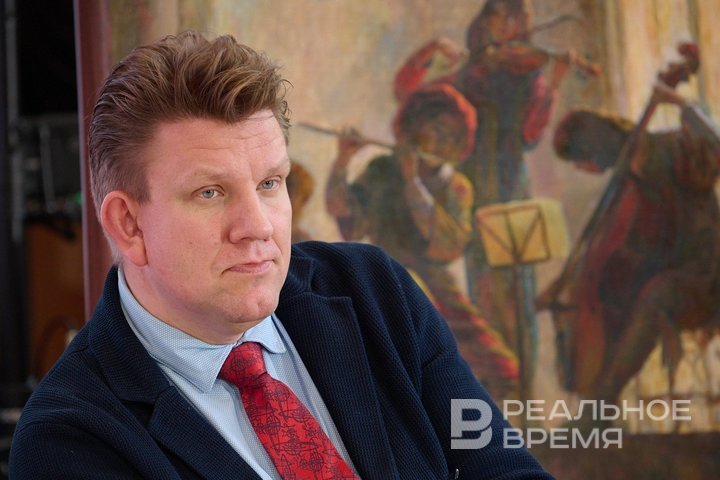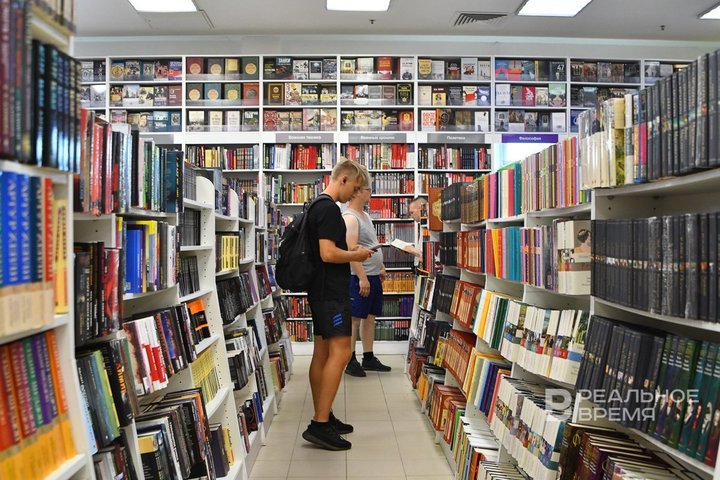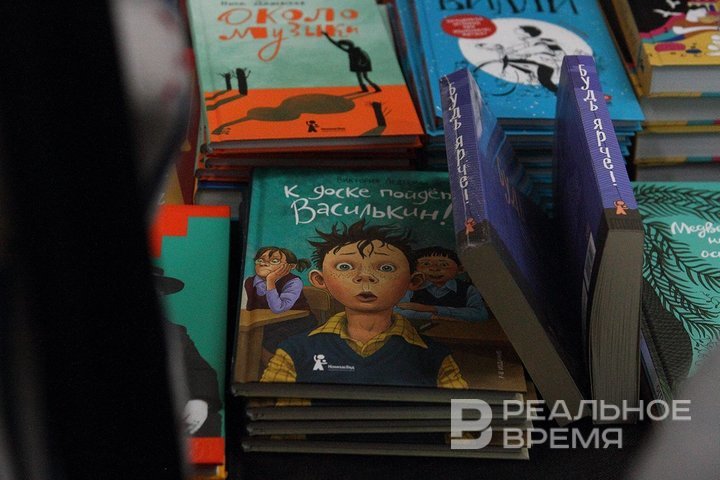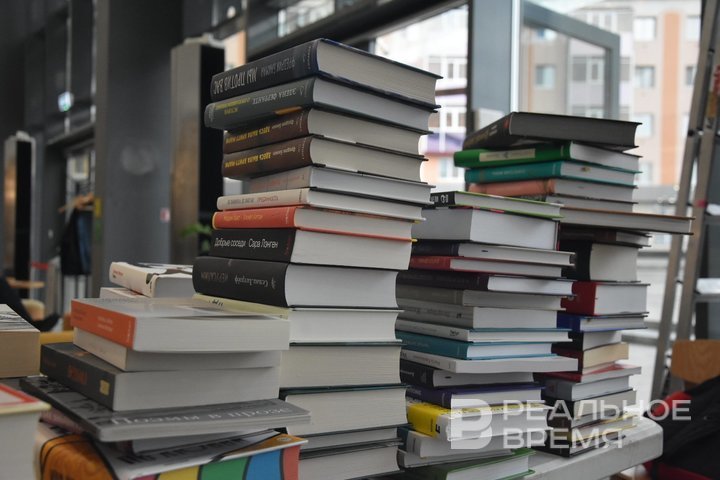Everything is bad, but the book market is growing in terms of money
Director General of Eksmo Publishing House Yevgeny Kapyev spoke about the results of 2024 in the paper book market

Traditionally, on 14 February, Book Giving Day, Eksmo-AST publishing group summed up the results of the past year for the book industry. Director General of Eksmo Publishing House Yevgeny Kapyev spoke about the sales figures for the year, what is preventing the industry from developing and what awaits the market in 2025.
Plus 1% in copies, plus 7% in money
In 2024, 233 million copies of books were sold in Russia, which is 1% higher than in 2023. Then 231 million copies were sold. For comparison: the book market showed the largest growth in 2021, when 234 million copies were sold, and the dynamics were 20%. But such growth is explained by a change in sales channels. In 2020, bookstores closed due to the pandemic, and sales in copies decreased by 24%. Nevertheless, the market never returned to the pre-pandemic level. In 2019, 258 million copies were sold.
Yevgeny Kapyev assessed the 1% growth as “a very high indicator.” “In any case, this is growth, this is not a decline,” added the CEO of Eksmo. He noted that the statistics did not include data on the market of electronic, audio books and self-publishing, where the indicators are much better — plus 31% compared to 2023. And if you look at the whole picture, then, according to Kapyev, everything is not so bad. As for sales in money, here, according to Eksmo estimates, the paper book market grew by 7% and amounted to 98 million rubles. Yevgeny Kapyev emphasised that these are data from the commercial market, without taking into account educational literature, thanks to which it is often possible to show “nice” figures. For comparison: in 2023, the market grew by 11% and amounted to 92 million rubles. If you look at the data for five years, you can see constant growth. But the growth is questionable. Since the average price of books is also growing from year to year.

According to Kapyev's estimates, in 2025 the market will shrink by 3% in terms of the number of copies sold, but in money it will grow by 9%. And the CEO of Eksmo also noted that these forecasts may be inaccurate and everything will change for the better, since “January [2025] shows quite good results.”
“One in two books is sold on marketplaces”
Today, the main sales of books come from marketplaces. Their share in 2024 was 46.1%, which is 34% more than in the previous period. In 2023, the share of marketplace sales was 34.4%, and in 2022 — 21.2%. But sales on other online platforms (not marketplaces) fell significantly — by 41%. Their share was only 7.5%. For comparison: in 2023 it was 12.7%, and in 2022 — 18%. Yevgeny Kapyev associates this decline in online platforms with the Labyrinth online store, which faced serious problems last year. Megamarket (Editor’s note: Sber's marketplace) is not doing very well either,” added the CEO of Eksmo.
“In fact, every second book is sold on marketplaces. But if we evaluate more honestly, I would say that their share is not 47%, but 60%. The fact is that we evaluate in money, and prices on marketplaces are lower than in retail. Accordingly, more is sold there in pieces. This is a serious change in the market,” noted Yevgeny Kapyev.

If we talk about federal book chains, then here, as Kapyev said, “the situation is stable.” Their dynamics amounted to minus 1%. The same figures are for traditional bookstores. That is, their share of sales is steadily slowly declining. Although both of them showed a small, but still growth in 2023. The share of federal chains then amounted to 11.8% (compared to 11.7% in 2024), and traditional bookstores — 25.6% (25.3% in 2024). Yevgeny Kapyev added that it is extremely important for the industry to preserve bookstores. This can be done, among other things, by transforming them.
“I really hope that the growth of marketplaces will not lead to the closure of bookstores. It is important to maintain this balance. Because people get acquainted with books primarily in bookstores. And their role is invaluable for the industry," said the CEO of Eksmo.
Sales in large stores such as Auchan, Metro, Lenta, etc. fell by 2%. Their share in 2024 was 4.5% compared to 4.6% in 2023. Although Kapyev also called this situation “stable.”
Only 1% of readers' attention goes to books
Yevgeny Kapyev specifically focused on the consumption of media content. He said that people read a lot these days. But not always books. They only account for 1% of readers' attention. According to Kapyev, on average, a person now spends 5 to 7 hours a day reading. But in 99% of cases, they read information on websites, social networks or Telegram channels. But here, too, Yevgeny Kapyev saw an optimistic moment. If most of the information on the Internet is difficult to verify, then books are quality content that has an author and responsibility.

At the same time, Kapyev noted that this 1% is the most regulated content by the state: “We currently have 34 documents, laws and by-laws that are aimed at regulating this 1%. This, of course, hinders the development of the industry, because we have to compete with other media. In addition, books are paid content.” Kapyev also said that the reduction in the number of books sold next year could be influenced by the excessive regulation of the industry by the state. According to him, these regulations prevent publishers from focusing on creativity.
In addition, there is a high probability that from the moment new laws come into force, including the labelling of literature that mentions drugs, and the law on drug propaganda, this year we will see a surge in “dropping assortment.” That is, books will be removed from sale or a new print run will not be printed.
“The risks are very high. If we look at the previous laws, the industry often expected that there would be soft regulation. But in fact, everything had to be removed. Therefore, there is a fairly high risk that a decent amount of literature could be removed from the industry. And this will also affect the total number of books sold per year. We hope that before the new drug law comes into force, we will be able to find a compromise,” added Yevgeny Kapyev

Late last year, children's literature was much discussed in the book industry. First of all, because of the scandalous audit, according to which allegedly 60% of children's books on the Russian book market contain destructive content. But this is not the only problem in this segment. “Children's books in Russia are regulated by outdated technical regulations. It imposes certain restrictions, due to which children's literature cannot compete not only with the Internet, but also with books produced in other CIS countries,” said the general director of Eksmo. According to him, a working group has now been created to solve this problem. Kapyev believes that the situation will change at the end of next year. But not before.
And at the end of last year, Yelena Yampolskaya said that book publishing needs to be regulated by law. She proposed issuing a separate permit for the printing and sale of each book. Representatives of the book industry were not happy about this turn of events. And many people think it is impossible in principle. Nevertheless, Yevgeny Kapyev said that the introduction of licensing should also be taken into account. And if it is introduced, it will definitely not add optimism to the industry.
Pirates have become publishers
The rise of digital and paper piracy has a negative impact on the industry. We already know that book files are leaked online. This type of piracy is not new and has been known for a long time. They are fighting it, but with varying success. And in the last two years, paper piracy has been gaining momentum. That is, pirates actually publish books in circumvention of all legal norms and without royalties to authors. Usually, such books are sold on marketplaces. Yevgeny Kapyev said that representatives of the book industry cooperate with online trading platforms. But it is still quite difficult to track every appearance of a pirated book. Marketplaces block certain product cards, but then new ones appear. Such is the game of cat and mouse.
“Pirates have learned to quickly and flexibly respond to any demands. Together with marketplaces, they make money on this. Authors do not receive royalties. The industry does not make any money on this either,” Kapyev complained.

In addition, the CEO of Eksmo publishing house named a number of other barriers that hinder the development of the industry. These are the rising cost of traffic in advertising and marketing, competition for talent with other markets, and the risk of falling demand amid rising book prices.
Something went wrong with children's literature and comics
As for the segments, fiction showed the greatest growth: 32.1% of books sold compared to 27% in 2023. The dynamics was 19%. Applied and non-fiction literature grew by 8%. Its share was 32% compared to 29.7% a year earlier. But children's literature and comics showed a decline for the first time in the last five years. Children's literature fell by 4%, and its share was 25.3% (26.5% in 2023), and comics — by 3%, they took up 4.4% of total sales (4.5% in 2023).
“This was influenced by many factors: from the departure of Western copyright holders to the lack of high-profile new products from Russian authors. This is a whole problem. Because drawing a comic is a big investment from all sides, and it also involves big risks. And unfortunately, authors often go into animation or related industries. There are fewer risks and much more income there,” said Yevgeny Kapyev.
The director general of Eksmo sees the problem with children's literature in the demographic hole, which is already making itself felt. According to his forecasts, over the next 3-5 years, children's literature will find itself in a “very difficult situation.”

Next year, according to Kapyev, the number of independent publishers will grow, and new names will appear there, which, in turn, is facilitated by the interest of readers in domestic content. In addition, artificial intelligence and its integration at all stages of book production will help the industry survive. “Now, at Eksmo, we have 30 projects in different areas that are related to artificial intelligence: from proofreading to design and translation. That is, we are trying to come up with a tool everywhere that will help the editor. This is not a replacement for a person, it is an assistant that will expand the functionality for our team as much as possible,” Kapyev added.
Another source of sales is entering international markets. According to Yevgeny Kapyev, in 2024, the total circulation of Russian book exports amounted to almost 7 million copies. This is 30% higher than in the previous period. Also in 2024, the rights to film adaptations of several books were sold, which means that a surge in sales can be expected for them. And as an “extremely important area,” Yevgeny Kapyev called social campaigns to promote reading and work with school libraries.
Ekaterina Petrova is a book reviewer of Realnoe Vremya online newspaper, the author of Poppy Seed Muffins Telegram channel and founder of the first online subscription book club Makulatura.